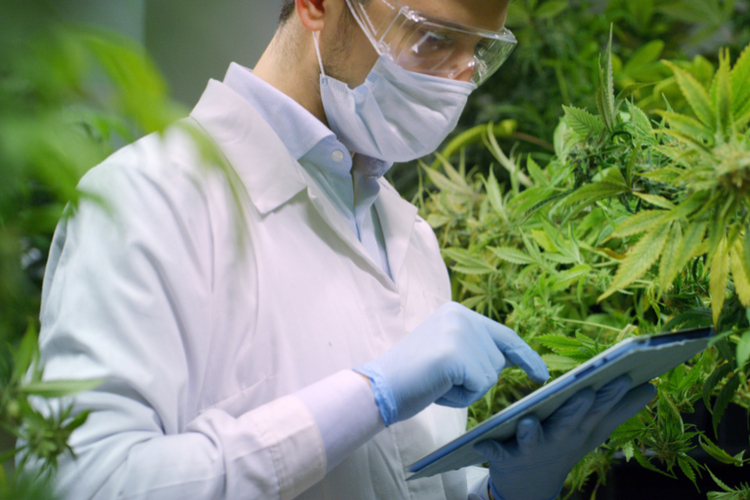ALS and Cannabis: No Cure, But Current Research Shows Promise
If you follow cannabis news with any frequency, you’ve probably read headlines promising incredible new advances in the field of cannabis medicine. Every week—or so it seems—researchers discover new uses for this very ancient medicine, ranging from halting the spread of cancer to curing ebola.
Unsurprisingly, many of these claims turn out to be unfounded—or in the case of cancer—based on questionable conclusions. Though cannabis most certainly has a use in helping us manage the side effects of cancer treatments, and some studies have in fact established that cannabinoids may slow the growth of certain cancers. That said, there’s a wide gulf between demonstrating such an effect in the laboratory and putting it into action.
One application of cannabis medicine that has demonstrated authenticated results is the interaction between cannabis and ALS. ALS, or amyotrophic lateral sclerosis—otherwise known as Lou Gehrig’s disease—is a terminal neurodegenerative disease. Before we share the current knowledge about interactions between cannabis and ALS, we’ll take a moment to explain a little about the disease itself.
What is ALS?
ALS is a progressive neurodegenerative disease that affects nerve cells in the brain and the spinal cord. When a person is afflicted with ALS, the motor neurons that form pathways between the brain and the spinal cord and the muscles weaken and die. The result is that the person gradually loses the ability to speak, eat, move and breathe. Once diagnosed, the average life expectancy of a person with ALS is two to five years.
ALS usually strikes people between the ages of 40 and 70, and it is estimated there are between 16,000 and 30,000 Americans who have the disease at any given time. For reasons that remain unknown, military veterans are approximately twice as likely to be diagnosed with the disease as the general public.
Cannabis and ALS: What We Currently Know
Although there is no evidence that cannabis can “cure” ALS, there are indications that it can help slow the progression of the disease. In addition to helping patients manage the symptoms of the disease, cannabis—in much the same way that it helps those undergoing treatment for cancer—subjectively helps them control many of the disease’s side effects, such as spasticity and pain.
But a study published in 2016 suggests that, because the cannabinoid system seems to be involved in the pathology of ALS, cannabis may have a role to play in prolonging the lives of those living with the disease.
These findings build upon previous animal-model studies. In 2004, researchers found that THC, the most prevalent cannabinoid, delayed the progression of ALS in mice. More broadly, the role of both THC and CBD as antioxidants and neuroprotectants is well established. Because they decrease the release of the amino acid glutamate following nerve cell injuries like those experienced with ALS, these vital components of cannabis medicine protect and prolong the lives of threatened motor neurons.
In Conclusion
While we’re optimistic that careful study will reveal even more valid medical uses for cannabis in treating ALS, as careful clinicians, doctors and researchers, it’s our duty to proceed with caution. There’s little doubt that cannabis can help manage the symptoms of serious diseases such as cancer and ALS, however, it would be irresponsible to suggest it is a “cure.”
That said, we look forward to future studies with anticipation. By studying this most ancient of medicines with the most cutting-edge tools at our disposal, we’re confident that validated, authoritative answers will emerge to lead us to better courses of treatment and one day—we sincerely hope—a real cure.



